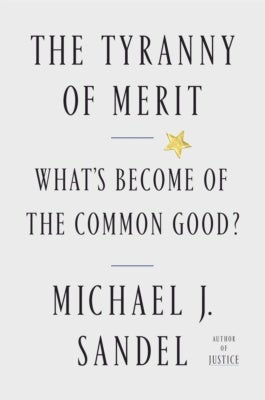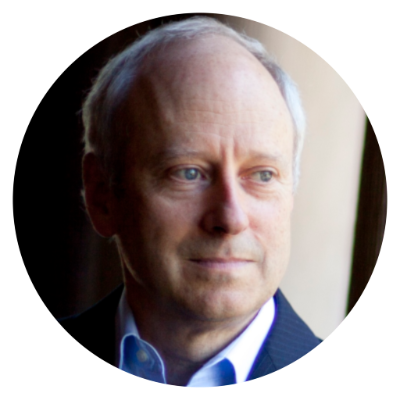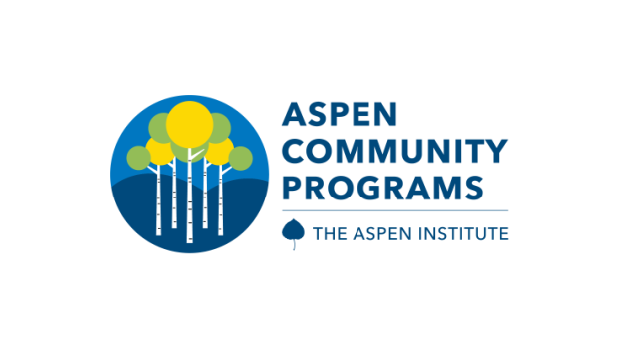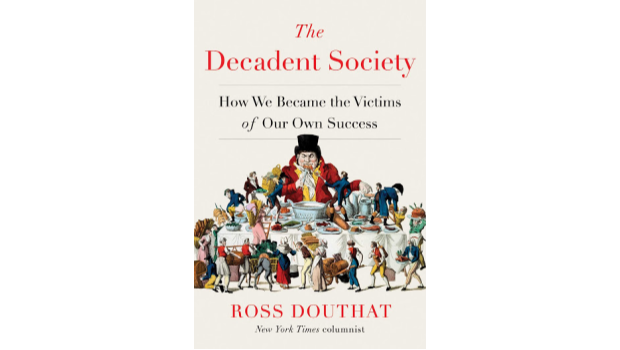McCloskey Speaker Series – The Tyranny of Merit: What’s Become of the Common Good?
Featuring Michael Sandel, professor of political philosophy at Harvard University and author of The Tyranny of Merit: What’s Become of the Common Good, in conversation with Elliot Gerson, executive vice president at the Aspen Institute. Sandel has been described as “the most popular professor in the world.” In his forthcoming book to be released in September 2020, he examines how we define success and how our meritocracy is hurting the common good. Can we be hopeful for a future that prioritizes the common good over individual success?
Virtual Event || 2:00pm PT | 3:00pm MT | 4:00pm CT | 5:00pm ET
Pre-order his book, The Tyranny of Merit: What’s Become of the Common Good, here.

“The Tyranny of Merit is truly a great book. It is the rare book of political theory that will be widely accessible, make news, and provoke healthy debate — debate that will strengthen our democracy regardless of the side one takes. And it will resonate widely, even profoundly, about the situation we are all in. I have read nothing for example as compelling about the real reasons for Trump/Brexit, and about how the last 40 years of market madness have torn our democratic fabric. And it makes many practical suggestions how to bring us ‘beyond the tyranny of merit toward a less rancorous, more generous public life.’
“The book will be a classic on the founding question of the Aspen Institute: “what is the good society?” And it makes a point that will be surprising if not shocking to many: the answer isn’t meritocracy.”
—Elliot Gerson, Executive Vice President, Policy and Public Programs and International Partners, The Aspen Institute
Additional Praise for The Tyranny of Merit
“Astute, insightful, and empathetic, Sandel exposes the cruelty at the heart of some of our most beloved myths about success. A must-read for anyone struggling to understand populist resentment, and why, for many Americans, the American Dream has come to feel more like a taunt than a promise. A crucial book for this moment.” —Tara Westover, author of Educated
“The Tyranny of Merit deftly exposes the flaws and fallacies of meritocratic philosophy. In lucid, illuminating prose, Sandel makes a compelling case for uprooting inequality and building a fairer society shaped by true principles of justice. A seminal work.” —Darren Walker, President, Ford Foundation

Michael J. Sandel teaches political philosophy at Harvard University. His books What Money Can’t Buy: The Moral Limits of Markets and Justice: What’s the Right Thing to Do? were international best sellers and have been translated into 27 languages. Sandel’s legendary course “Justice” was the first Harvard course to be made freely available online and has been viewed by tens of millions. His BBC series “The Public Philosopher” explores the philosophical ideas lying behind the headlines with participants from around the world.
 Elliot Gerson is the executive vice president at the Aspen Institute responsible for its Policy Programs, its Public Programs and its relations with its International Partners. The Institute’s more than 30 Policy Programs focus on both domestic and international issues. They foster candid dialogue among leaders and policy experts, advocate new policy, and have enormous impact on the ground. The Institute’s public programs – including the Aspen Ideas Festival, The Aspen Security Forum, CityLab, and many smaller programs across the country and world – open the Institute’s doors to a broader audience and further both its educational goals and its promotion of ideas to lead to action. The Institute has International Partners based in the Czech Republic, France, Germany, India, Italy, Japan, Mexico, New Zealand, Romania, Spain, and Ukraine. Gerson also administers the US Rhodes Scholarships. He was a Rhodes Scholar at Oxford, a US Supreme Court clerk, practiced law in government and privately, held executive positions in state and federal government and on a presidential campaign, and was president of start-ups in health care and education, and of two leading national insurance and health-care companies. He has served on many non-profit boards, especially in the arts.
Elliot Gerson is the executive vice president at the Aspen Institute responsible for its Policy Programs, its Public Programs and its relations with its International Partners. The Institute’s more than 30 Policy Programs focus on both domestic and international issues. They foster candid dialogue among leaders and policy experts, advocate new policy, and have enormous impact on the ground. The Institute’s public programs – including the Aspen Ideas Festival, The Aspen Security Forum, CityLab, and many smaller programs across the country and world – open the Institute’s doors to a broader audience and further both its educational goals and its promotion of ideas to lead to action. The Institute has International Partners based in the Czech Republic, France, Germany, India, Italy, Japan, Mexico, New Zealand, Romania, Spain, and Ukraine. Gerson also administers the US Rhodes Scholarships. He was a Rhodes Scholar at Oxford, a US Supreme Court clerk, practiced law in government and privately, held executive positions in state and federal government and on a presidential campaign, and was president of start-ups in health care and education, and of two leading national insurance and health-care companies. He has served on many non-profit boards, especially in the arts.

